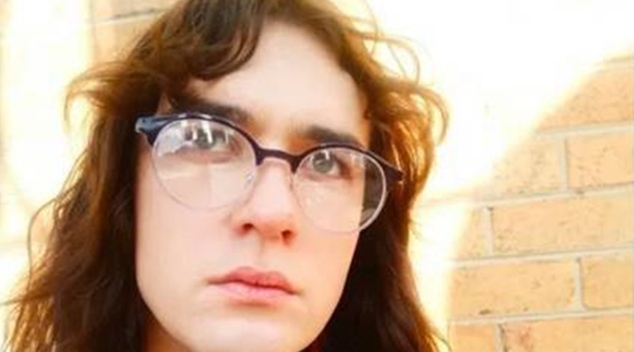The Victorian coroner has recommended significant changes to police procedures and increased funding for transgender specific health services after looking into the death deaths of five people who were transgender or gender diverse.
Warning: This story has details of suicide which might be distressing to some readers. For 24-hour crisis support and suicide prevention call Lifeline on 13 11 14. For Australia-wide LGBTQI peer support call QLife on 1800 184 527 or webchat.
Coroner Ingrid Giles has put forward nine recommendations after looking into the cases of five transgender people who died by suicide during the Covid-19 pandemic period. The Victorian government says it is reviewing the recommendations, while Switchboard Victoria have vowed to advocate for their full implementation.

The lead case was that of 28-year-old Melbourne woman Bridget Flack who went missing in December 2020. Her disappearance sparked a massive search led by the LGBTIQA+ community. Community members found her body eleven days later in parkland near where she was last seen, she had taken her own life.
The coroner also looked into the deaths of 20-year-old Heather Pierard, 25-year-old Matt Byrne and 33-year-old Natalie Wilson. The name of the fifth subject of the inquiry has not been made public, she was a 19-year-old transgender woman.
The coroner said she investigation had found that many of the people she was investigating and supportive friends and family, but they also struggled with mental health and faced barriers when trying to access support.
In her findings Coroner Giles found that in Bridget Flack’s case police had initially relied on a photograph of her taken from before her gender transition, and they’d failed to adequately access the risk factors relating to her disappearance.
The coroner recommended that more guidance materials are developed to assist offers to collect more specific information, and that in the future greater emphasis be put on trans and gender diverse people experiencing discrimination in society.
She also suggested that police should act quicker to triangulate a missing person’s mobile phone, noting that if the action is left too long and the phone’s batteries go flat it cannot be located. Coroner Giles also argued that police need clearer protocols for identifying people at risk and escalating the action of triangulating a mobile phone.
The coroner was also critical of Victorian police’s lack of a ground search in the location where Flack’s body was discovered. A search was undertaken by the LGBTIQA+ community and two community members discovered the scene of her passing.
Police were criticised for being aware of the community led search being underway and not taking a greater role in the process, the coroner said they failed to consider the safety and wellbeing of the community members searching for Bridget, and the resulting social contagion that may have occurred.
Further recommendations were made on police procedures on conducting a missing persons inquiry, and it was noted that police systems need to be improved to allow for the recording of a greater range of gender identifiers.
An increased level of awareness training about LGBTIQA+ people and their communities was recommended not only for new recruits but long-standing officers as well.
The coroner noted that while the police service had implemented many strategies in this area in recent years, there was still much more that could be initiated.
She also highlighted that there have been significant incidents in recent years which have damaged the police’s standing in the LGBTIQA+ communities, specifically noting an incident where photographs of former football player and Coach Danielle Laidley were unlawfully shared by serving officers.
The coroner said the police’s response to Bridget Flack’s disappearance was another incident that would have made LGBTIQA+ people consider whether the police could be trusted.
“The missing persons search for Bridget was a further example of an incident in which that level of trust was impacted because the LGBTIQA+ community felt that police had left vulnerable community members to search for one of its own.” she wrote in her report.
The coroner said that there was no evidence that the police’s response to Flack going missing was deficient because of her status as a transgender woman, rather their deficiency came from failing to recognise the risk factors associated with her situation, and inefficient procedures.
“I find that, while there were serious deficiencies in the Victoria Police missing persons investigation for Bridget, there is no evidence that the investigation was not taken seriously because she was transgender. Rather, I find police failed to appreciate the actual risk of suicide that Bridget presented.” she said in her findings.

More mental health support needed for transgender and gender diverse people
Coroner Giles said that there had been evidence from mental health experts who noted that members of the LGBTIQA+ communities experience discrimination and marginalisation at a significantly higher rate.
In her report she said trans and gender diverse people (TGD) face disproportionate rates of distress, mental ill health, and suicidality compared to the population as a whole.
“The reasons for this are multifactorial, intersecting, and linked to extrinsic factors associated with the broader community’s responses to TGD people, which can include experience of discrimination, violence and exclusion that erode the TGD community’s wellbeing and contributes to mental ill health.” she said.
The court also heard about the role the media can play in public discussions about trans and gender diverse people, and the flow on effect this can have across society. She also noted that the lockdowns required during the covid-19 pandemic also amplified people feeling more isolated, and this had a negative effect on mental health.
The coroner also commented on the lack of statistical data about the number of people who are transgender or gender diverse, and this compounded the challenge of developing effective support services.
Timely access to gender affirming care is a factor
The coroner noted that she had heard extensive evidence about the positive effects of people accessing gender affirming care.
“I heard extensive evidence…. supporting general outcomes of improved mental wellbeing and reduced
suicidality amongst TGD people when they access gender-affirming medical treatment.” Giles wrote.

The coroner noted that she had heard concerns about the long wait times for people to access appropriate medical care, and the challenge people face in paying for the medical treatments and surgeries that they desire, and the complexities of navigating the health system.
The investigation did not delve deeply into the current treatment approach of young people experiencing gender dysphoria as all of the cases being considered were about people who most had transitioned gender as an adult. The coroner did however note that she had not heard any evidence that raised concern about the approach being taken in this area, making specific note of the Cass Review in the United Kindom.
“The Inquest did not identify any issues with the approach of RCH Gender Service or the gender-affirming care given to young TGD people, which is provided in accordance with national and international standards, that would warrant further evidence being called.” Coroner Giles said.
The coroner said work needed to be done to remove many of the barriers that trans and gender diverse people encounter.
“The pattern of increasing demand for gender-affirming care that far outstrips supply is a feature across all of the publicly-funded gender clinics, and calls into question the wellbeing of the individuals on the waitlists, who may have limited options for mental health support in the interim, at a point where they are often most vulnerable.”
Coroner Giles called on the “Department of Health to consider immediately increasing resourcing to meet the growing demand for publicly-funded gender clinics delivering critical culturally appropriate gender-affirming care to TGD patients.”
She also highlighted that more training and support is needed for General Practitioners so that they can provide greater support.
“I consider that the risks to the wellbeing of TGD patients from long waitlists for gender affirming care, high costs, and ongoing workforce issues are compounded by the fact that mainstream health and mental health services may not be genuinely accessible or culturally safe for many in the TGD community.” she wrote.
“I consider that, in 2024, it is wholly unacceptable that a TGD person should have to consider which clinicians are ‘safe’ and which are ‘unsafe’ to consult with.” Coroner Giles wrote.
The work of mental health initiatives within the LGBTIQA+ communities such as Switchboard Victoria, Q Life and Rainbow Door were noted.
Do you need some support?
If you are struggling with anxiety or depression, support and counselling are available from:
QLife: 1800 184 527 / qlife.org.au (Webchat 3pm – midnight)
QLife are a counselling and referral service for LGBTQIA+ people.
DISCHARGED: info@discharged.asn.au / discharged.asn.au
Discharged is a trans-led support service with peer support groups for trans and gender diverse folks.
Lifeline: 13 11 14 / lifeline.org.au
Beyondblue: 1300 22 4636 / www.beyondblue.org.au





